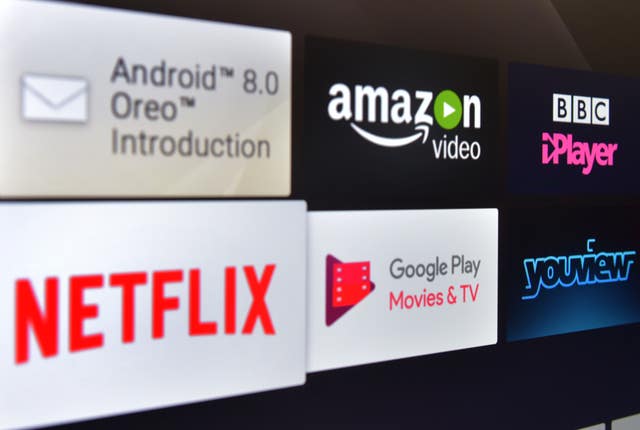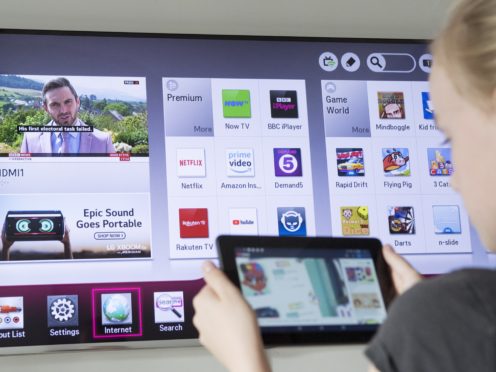Public service broadcasters are continuing to experience declining viewing figures despite the growth of online and on-demand services, Ofcom has said.
The decrease is particularly sharp among younger audiences, according to the media watchdog.
Ofcom found that rivals to the public service broadcasters, such as Netflix and YouTube, have provided viewers with greater competition and the range of content on offer is likely to increase further.
The revelations come after a five-year review by the watchdog of public service broadcasting at the BBC, ITV, Channel 4, Channel 5, Scottish channel STV and Welsh-language broadcaster S4C between 2014 and 2018.

It found that, while on-demand services such as BBC iPlayer and All 4 are becoming increasingly popular, their growth is failing to plug the gap created by losses of viewers of live broadcasts.
“People are watching the public service broadcasters less, as they are no longer the only or necessarily audiences’ preferred source of content that ‘informs, educates and entertains’,” the review said.
Recent and planned changes to online services “such as more box sets, extending the length of time programmes are available, and improved functionality, including greater personalisation”, could help make them more popular, according to the review.
Ofcom found that, while public service broadcasting is facing challenges, people are still on average spending several hours each day watching television and video content.

In 2018 the average amount of time that anyone over the age of four spent watching videos in some form was four hours and 54 minutes.
Viewers watched an average of three hours and 12 minutes of live TV each day in 2018, which was down 11 minutes from 2017.
In the 16 to 24 age group, there was a 53-minute drop in daily live TV viewing between 2014 and 2018.
The review said that current levels of programming on the public service broadcasters “will come under pressure as audiences’ viewing habits continue to change and competition from large global players increases”.
“At the same time, other providers such as Sky and Netflix are offering both a large volume and wide range of high-quality content to UK audiences,” it added.

A BBC spokesman said: “Ofcom’s report shows that audiences really value the programmes and services that the BBC and public service broadcasting provides.
“Whilst young people are moving more online, the BBC is changing to meet their needs by offering much more great content through iPlayer and BBC Sounds.
“We agree with Ofcom that now is the time to look at how the public service broadcast framework can be strengthened to offer more to audiences and more to the creative economy.”
In a separate report on the Channel 4 Corporation (C4C), which was also published on Thursday, Ofcom said the broadcaster did not produce as many new ideas on screen between 2014 and 2018 as it did during the last review period.
The review added it is “important” the broadcaster “finds compelling new content”.
It said: “This involves taking risks by experimenting with new titles, but also by phasing out some titles and formats that have been in the schedules for a long time and which might be edging out new ideas.”
